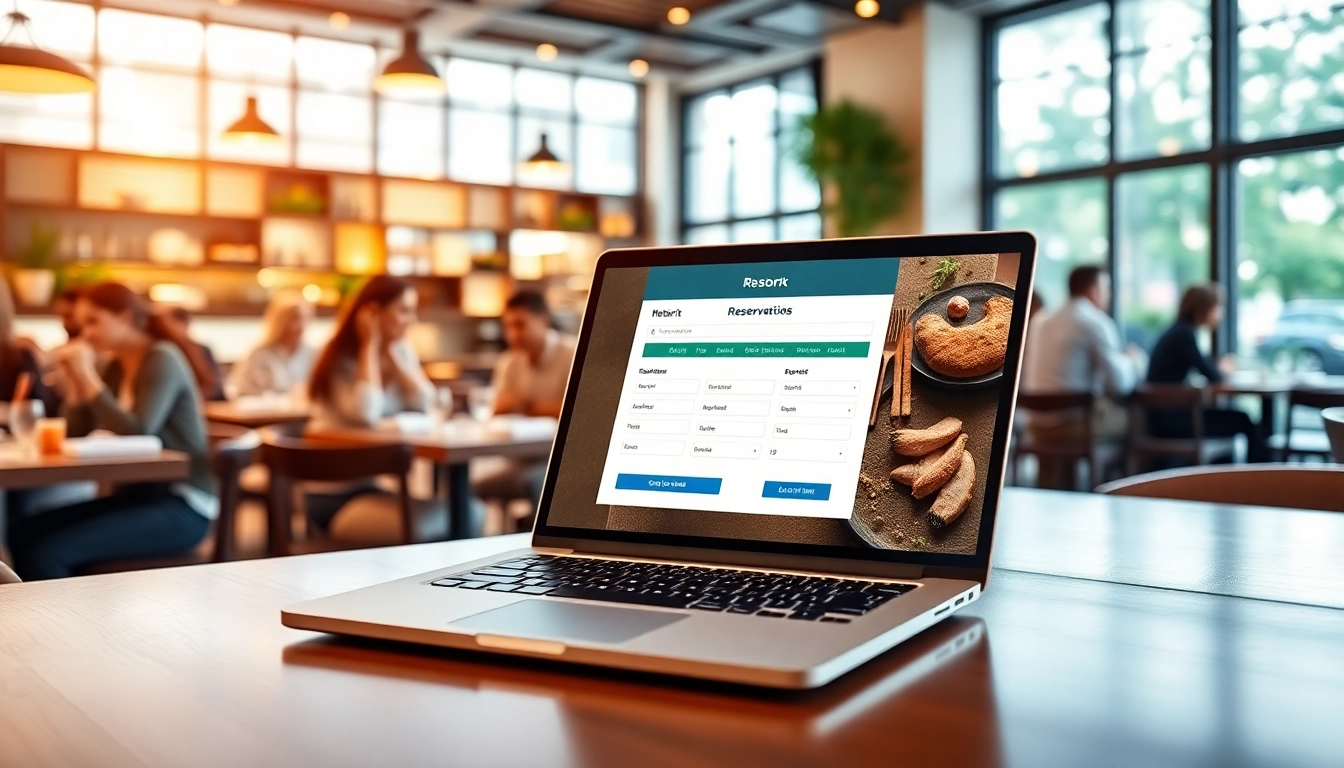Understanding Reservation Services
What Are Reservation Services?
Reservation services refer to systems and platforms that facilitate the booking of services, whether in hospitality, travel, or other industries. These services include managing bookings and ensuring that seat availability or room reservations align with customer requests. They can be integrated into websites or operate through dedicated apps, and they are crucial in industries like restaurants, hotels, and travel agencies where customer experience is paramount. Modern reservation systems often leverage technology to offer real-time updates, ensuring that inventory is managed efficiently while minimizing errors that can lead to customer dissatisfaction.
Importance of Reservation Services in Hospitality
In the hospitality sector, reservation services play an essential role in maintaining operational efficiency. They enable businesses to optimize seating arrangements in restaurants, manage room bookings in hotels, and streamline various other services. For businesses, implementing a reliable reservation system can be the difference between a thriving operation and one plagued by inefficiencies. The use of these services comes with numerous advantages, including:
- Enhanced Customer Satisfaction: By providing easy access to reservations, businesses can improve customer satisfaction and retention.
- Operational Efficiency: Automatization of bookings reduces the manual workload on staff, allowing them to focus more on customer service.
- Accurate Data Management: Reservation services enable better tracking of customer preferences and booking patterns, helping businesses cater to their audience effectively.
Common Features of Reservation Services
Most reservation services come equipped with a variety of features designed to enhance functionality and user experience. Typical features include:
- Real-Time Availability: Customers can see in real-time what services are available, helping to manage expectations accurately.
- Automatic Confirmations: Automated responses to booking requests provide reassurance to customers and streamline business processes.
- Customer Management: Features allowing businesses to keep detailed records of customer interactions and preferences for future engagements.
- Multi-Platform Integration: The ability to integrate with other platforms, such as payment gateways or restaurant management systems, for a seamless operation.
- Mobile Accessibility: With the rise of mobile usage, many services now offer mobile-friendly interfaces to enhance user experience.
Types of Reservation Services
Online Reservation Platforms
Online reservation platforms are web-based systems that allow customers to book services at their convenience. These platforms often feature user-friendly interfaces where clients can view availability, read reviews, and make reservations without needing to call or visit in person. Examples include well-known services like OpenTable for dining or Tock for unique culinary experiences. These platforms have revolutionized the way businesses attract and retain customers by enhancing convenience and providing access to crucial data.
Table Management Systems
Table management systems focus specifically on the dining experience, optimizing seating arrangements and managing reservations for restaurants. These systems allow restaurants to track available tables in real-time, manage waitlists, and decrease rush hour bottlenecks. An effective table management system can significantly enhance customer experience by minimizing wait times and ensuring that tables are optimally utilized.
Over-the-Phone Reservation Systems
Some businesses still depend on traditional booking methods, where customers call to make reservations. While this can be more personal, it is also more susceptible to human error and inefficiencies. Over-the-phone reservation systems often require skilled staff to manage bookings and availability accurately, which can be resource-intensive. However, combining these traditional approaches with modern technology through software can aid in tracking and managing these reservations effectively.
Benefits of Using Reservation Services
Improving Customer Experience
Reservation services are fundamentally about improving customer experience. Customers want convenience and efficiency, and being able to book a table, room, or service at any time via an easy-to-use platform meets this need. The ability to make adjustments or cancellations online also provides a level of control and flexibility that contemporary consumers expect.
Streamlining Operations
By automating the booking process, businesses can significantly streamline their operations. This automation reduces manual errors, enhances workflow efficiency, and ultimately lowers operation costs. When staff members are not bogged down by administrative tasks, they can focus more on providing high-quality service, which improves overall business performance.
Enabling Data Analysis
Reservation services collect valuable data regarding customer behavior, preferences, and seasonal trends. Analyzing this data enables businesses to make informed decisions, tailor marketing efforts, and enhance service offerings based on customer demand. Data-driven decision-making is an essential aspect of modern business, and effective reservation systems provide the framework to support this need.
Choosing the Right Reservation Service for Your Needs
Factors to Consider
When selecting a reservation service, businesses should consider several critical factors:
- User-Friendliness: The interface should be easy for both customers and staff members to navigate.
- Integration Capabilities: The reservation system should be able to integrate with existing software like POS systems or email marketing tools.
- Customer Support: Adequate support is crucial in resolving issues quickly, especially during peak service times.
- Cost: Analyze pricing models to determine the best value based on your business size and projected volume.
- Feature Set: Ensure the chosen service has features that align with business goals (e.g., analytics, marketing tools).
Comparing Top Reservation Service Providers
Some of the leading reservation service providers include:
- OpenTable: Renowned for its extensive restaurant network and user-friendly interface.
- Tock: Offers innovative reservation solutions for unique dining experiences.
- Resy: Known for innovative technology that improves efficiency in reservations and customer engagement.
- Bookeo: Focused on driving growth through flexible scheduling and booking systems for various sectors.
Implementation Steps for Businesses
Implementing a new reservation service should be approached strategically:
- Assess Your Needs: Evaluate what features are essential for your business.
- Research Solutions: Compare available systems, taking note of features, prices, and user reviews.
- Training Staff: Ensure your team is well trained on the new system to maximize its potential benefits.
- Launch and Monitor: After implementing the service, monitor its performance closely and gather user feedback.
Future Trends in Reservation Services
The Impact of Technology on Reservations
The future of reservation services is clearly intertwined with advancements in technology. Artificial intelligence (AI) and machine learning are emerging trends that allow systems to predict demand based on historical data, optimizing customer flow and service delivery. Chatbots are also becoming common for handling customer inquiries, facilitating quick, efficient booking experiences.
Exploring Customer Preferences
Understanding customer preferences through data analytics allows businesses to craft personalized experiences. Today’s customers are looking for tailored interactions and solutions. As more businesses adopt reservation services, offering customized experiences based on collected data will become increasingly essential to distinguish themselves from competitors.
Innovative Solutions on the Horizon
The next phase in reservation services is likely to feature even greater integration with social media platforms, enabling customers to book services directly from their favorite networks. As augmented reality (AR) and virtual reality (VR) technologies evolve, they may also find their way into the reservation process, allowing clients to explore venues or experiences before confirming their bookings.



